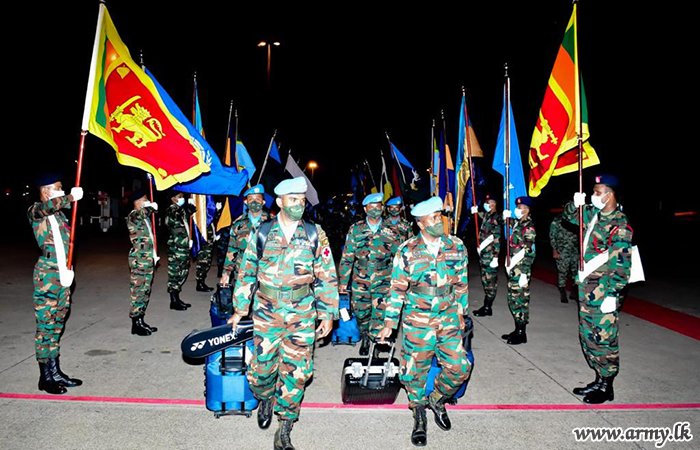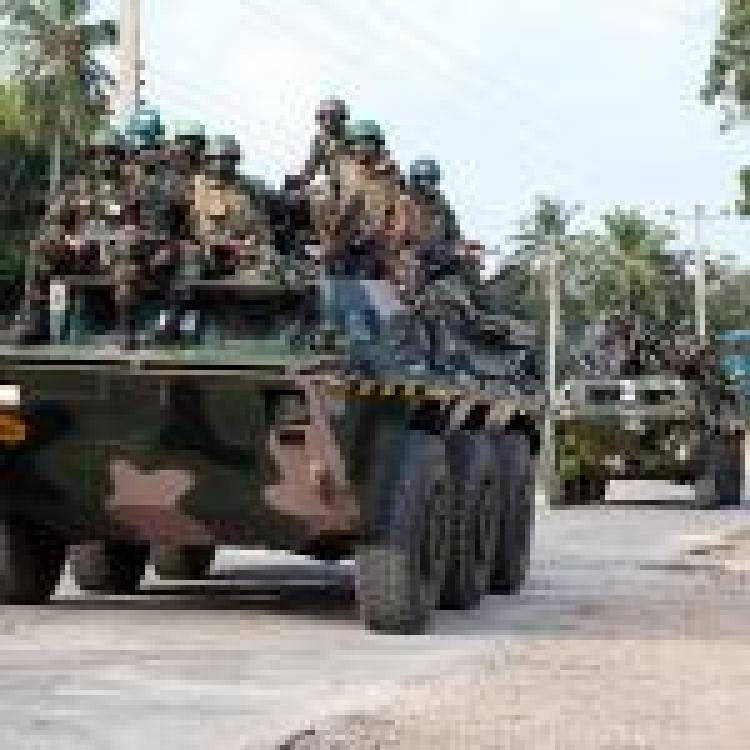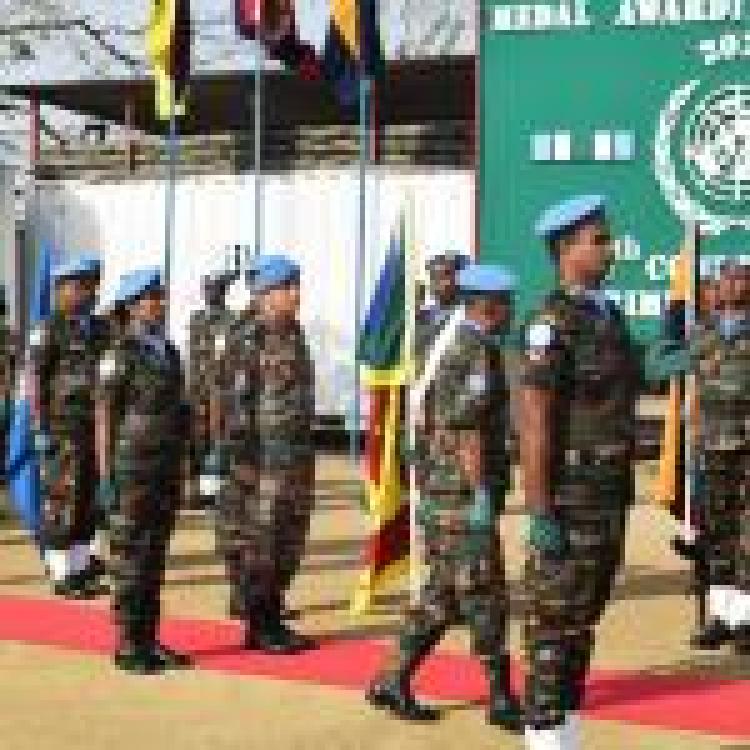
The United Nations Department of Peace Operations should "immediately suspend the deployment of Sri Lankan peacekeepers" over Sri Lanka's failure to investigate and prosecute international crimes and the promotion of "alleged war criminals to perform high-level state functions," Yasmin Sooka, Executive Director at the International Truth and Justice Project (ITJP) wrote for Just Security.
"Sri Lanka has explicitly stated that it will not hold accountable its 'war heroes' amongst them Army Commander Shavendra Silva and Defence Secretary Kamal Gunaratne, who have been named by UN High Commissioner for Human Rights Michelle Bachelet in her latest report to the UN Human Rights Council in Geneva as allegedly responsible for war crimes and crimes against humanity," she wrote.
"This challenges the credibility of UN Peacekeeping if it continues to allow the deployment of Sri Lankan peacekeepers," Sooka added.
The UN's obligations
The UN Secretary-General has acknowledged that the organisation faces reputational risk if it sends troops to protect vulnerable populations who then abuse them. With this background in mind, Sri Lankan soldiers should now be excluded from peacekeeping on two counts — if there is a risk they might be implicated in war crimes and crimes against humanity or in sexual exploitation and abuse.
The problem with Sri Lanka as a troop contributing country
"For Sri Lanka, sending its soldiers abroad as United Nations peacekeepers is a matter of prestige and international recognition, as well as a source of revenue. But this is an army with a history of entrenched impunity for sexual exploitation and abuse by its peacekeepers, as well as for alleged war crimes and crimes against humanity at home."
"According to the UN, the Sri Lankan security forces employed sexual violence not as 'isolated acts but part of a deliberate policy,' and the UN confirmed there are credible allegations that these personnel — including police units — continue to use sexual violence against men and women in detention," Sooka added.
In 2007, during a peacekeeping mission in Haiti, at least 134 Sri Lankan soldiers were found to be sexually exploiting children as young as nine.
Sri Lanka's faiure to investigate or punish perpetrators
The UN Committee Against Torture (UCAT) expressed concern over the fact that "out of more than a hundred soldiers accused, only 23 were convicted and given 'disciplinary punishments' for such serious crimes."
Sooka noted that "there was no reply from Sri Lanka" when the UNCAT asked them for the details of any investigations into the child abuse. "UN Peacekeeping should have followed up on this before accepting Sri Lankan soldiers in U.N. missions again," she added.
A broken UN process for vetting peacekeepers
"Deploying Sri Lankan soldiers who may be implicated in serious international crimes to peacekeeping missions is in breach of the UN's own due diligence policy adopted in 2011."
The appointment of a former government minister as chairperson of the Human Rights Commission, which is responsible for the vetting of troops, undermines the organisation's independence. "The 2021 OHCHR report confirms that UN Peacekeeping is no longer in a position to certify that Sri Lankan troops have been properly vetted and screened unless it moves the vetting process back to OHCHR to conduct in Geneva," Sooka added.
Employing soldiers who may have committed mass atrocities
Following Sri Lanka's decision to "it is now clear there is not going to be any credible attempt to hold accountable those responsible for mass atrocity crimes, not least because the new government itself comprises many of the alleged perpetrators."
UN Peacekeeping undermines work of OHCHR
"UN Peacekeeping Operations should not undermine the Office of the High Commissioner for Human Rights by ignoring the extensive reporting on war crimes and crimes against humanity committed by the Sri Lankan Army, as this reduces the coherence and integrity of the UN system. OHCHR’s latest report says the Sri Lankan Army and the Defense Ministry are run by alleged war criminals – surely this has to be a consideration when deploying their troops."
UN Peacekeeping undermines member states' sanctions
Following the appointment of war criminal Shavendra Silva as Sri Lanka's Army Commander in 2019, the UN suspended Sri Lankan troops from peacekeeping except where operations could be endangered.
Sooka highlighted that "in reality, there has been absolutely no change to the number of Sri Lankan peacekeepers deployed by the UN."
Reputational damage to the UN
"UN Peacekeeping has been tarnished because Sri Lankan soldiers wearing the UN's blue berets have been repeatedly photographed saluting an alleged war criminal, Silva, as they depart for missions in Africa and the Middle East. The image exhibits the disdain Sri Lanka has for the entire regime of international law, as well as UN investigations."
Read the full piece here.



